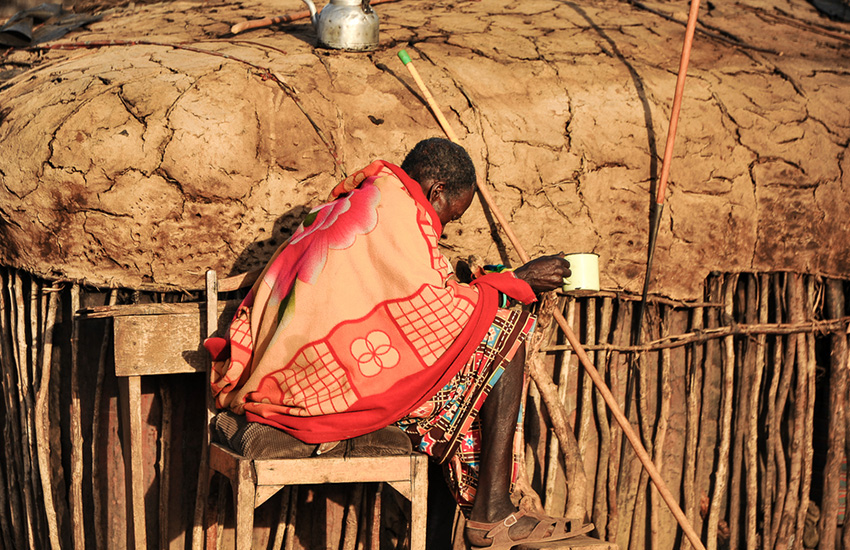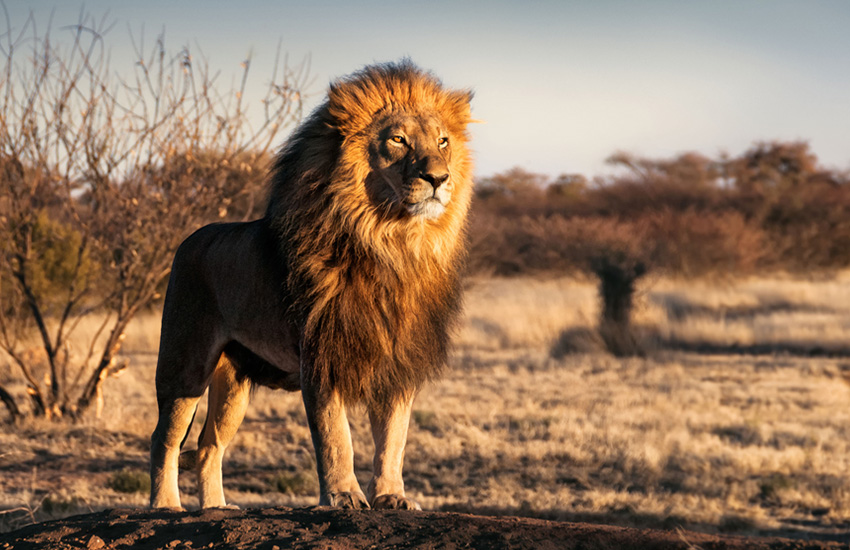
Jeremiah Lemiti is a pastoralist in Amboseli and his day kicks off early with a head count of his herd 150 livestock.
Months before, he would be dead asleep this early. Lemiti, 49, lives on the edge of a forest in Lemasusu area that is a human-wildlife conflict hotspot. Before, he spent nights guarding his livestock and slept during the day.
Lemiti has lost on average about 50 animals annually to lions, hyenas and leopards over the years. In 2016, he lost 10 goats in a single attack and nine cows within a month. This prompted him to embrace a predator-proof boma in 2017, a move that saw him enjoy calm nights and reduced animal losses.
“One attack was in the morning. Children were playing barely 15 metres away from where the lion killed my cow. I had to think of a solution,” says Lemiti.
He is one of the 275 beneficiaries of predator-proof bomas, an initiative started in 2010 by Born Free Foundation Kenya in Amboseli to alleviate human-wildlife conflicts.
“Before the predator-proof boma, I used lights to keep wild animals at bay, but they got used to it and started straying in. I spent sleepless nights guarding my homestead, but I am relaxed now. Even when predation spirals out of control, neighbours opt to bring their animals to my homestead,” he says.
Read Also: In the Mara, lions and cows eat from one plate
Unlike Lemiti, Olchurie Kitipai’s manyatta is fenced with twigs. With a herd of 200 animals and he has lost over 10 livestock to lions and hyenas.
Kitipai, 49, spends sleepless nights to guard his wealth and when invaded by the carnivores, he, with the help of his brother, can only scare them away and not dare spear them.
“We can’t kill the carnivores. Years back we speared them but nowadays the laws are harsher. Besides, our siblings and children are working with Kenya Wildlife Service (KWS) or conservationists,” says Kitipai.

Born Free Foundation’s head of conservation David Manoa says the idea to create predator-free bomas was prompted by a survey that showed decreasing number of lions, with a majority being killed by pastoralists.
“In 2008, a KWS survey indicated the lions population had dropped sharply from 10,000 in the 1980s to lows of 2,000 lions. This called for practical ways for co-existence of pastoralists and wild animals,” says Manoa.
Amboseli, categorised by KWS as one of the major hotspot of human-wildlife conflict, is a 7, 500-square kilometre ecosystem comprising the Amboseli National Park and communal land hosting about 6,000 people and over 800,000 livestock.
“We thought of fencing the manyattas with wire mesh and poles, strong enough to deter penetration. It is a simple concept but it took dozens of barazas to convince locals to embrace it,” he says.
The lion proof bomas cost Sh140, 000. The home owner caters for 25 per cent of the cost.
Today, Born Free Foundation has erected 265 predator-proof bomas in Amboseli and 10 in West Kilimanjaro in neighbouring Tanzania. “We monitored 25 bomas and realised carnivores were keeping off. You can see zebras seeking safety near manyattas with this protection,” says Manoa. Amboseli senior warden Kenneth ole Nashuu applauds the concept as having eased conflicts.
Read Also: Tourist poses with lion moments before being mauled
“The bigger part of the ecosystem is communal land and privately owned ranches that act as dispersal areas for wildlife. But with these bomas, predation on livestock is minimal. There truly is co-existence,” says Nashuu.

Ole Sitonik Nchoroke, 48, radiates confidence, saying their wives no longer have to scream the whole night to scare big cats away whenever their men are away. “I have lost two cows and over 20 goats to predators. Whenever I spent night away from home, I was worried about my family and livestock. But today, I am confident that even in my absence, my animals are protected,” says Nchoroke.
 The Standard Group Plc is a multi-media organization with investments in media
platforms spanning newspaper print
operations, television, radio broadcasting, digital and online services. The
Standard Group is recognized as a
leading multi-media house in Kenya with a key influence in matters of national and
international interest.
The Standard Group Plc is a multi-media organization with investments in media
platforms spanning newspaper print
operations, television, radio broadcasting, digital and online services. The
Standard Group is recognized as a
leading multi-media house in Kenya with a key influence in matters of national and
international interest.









